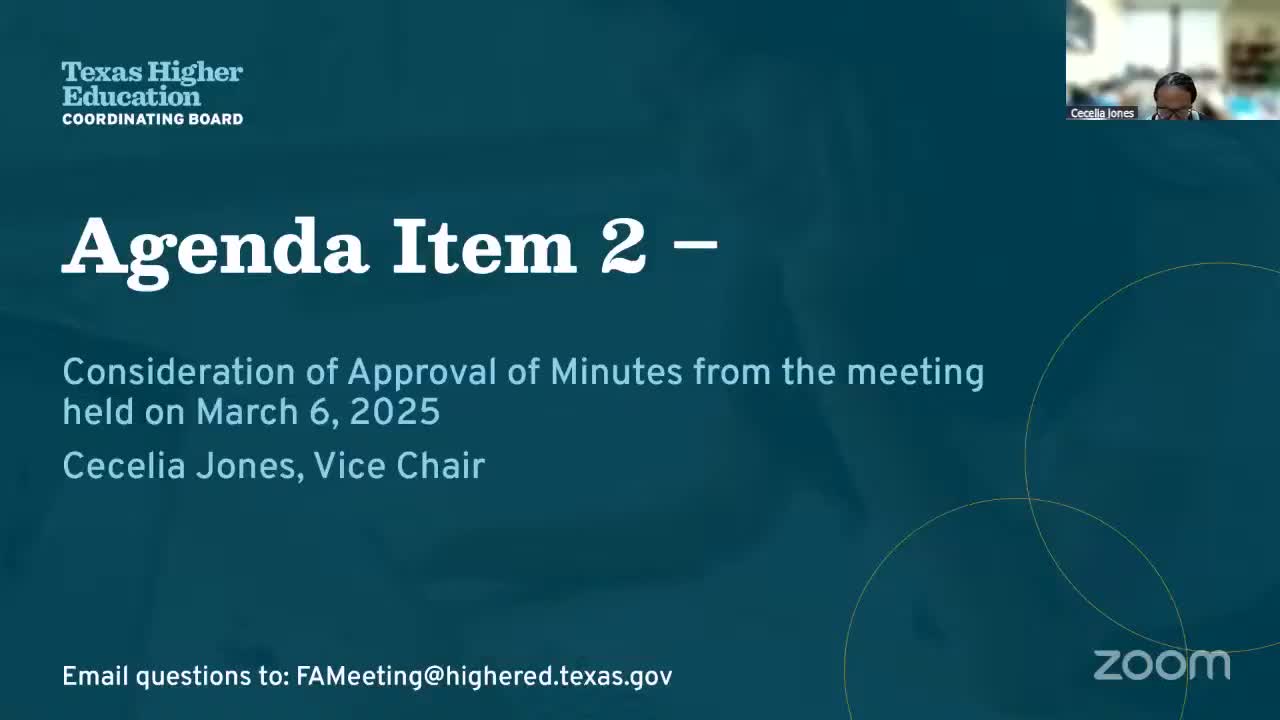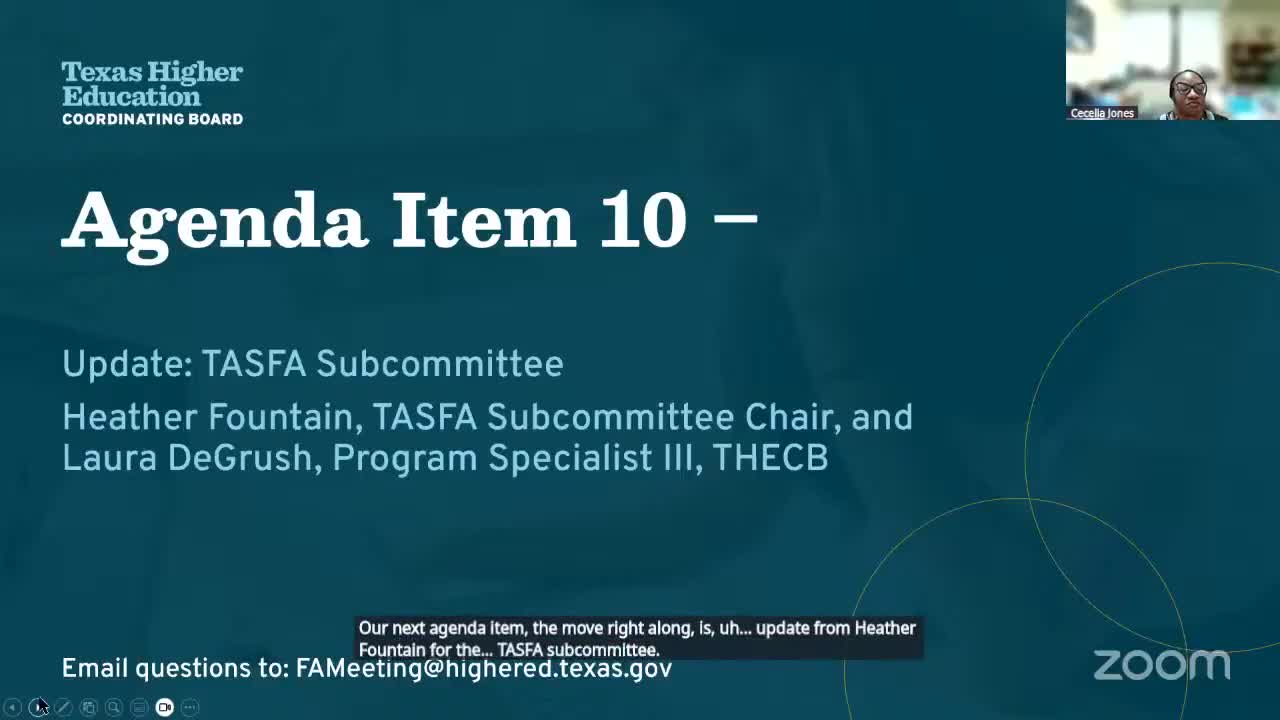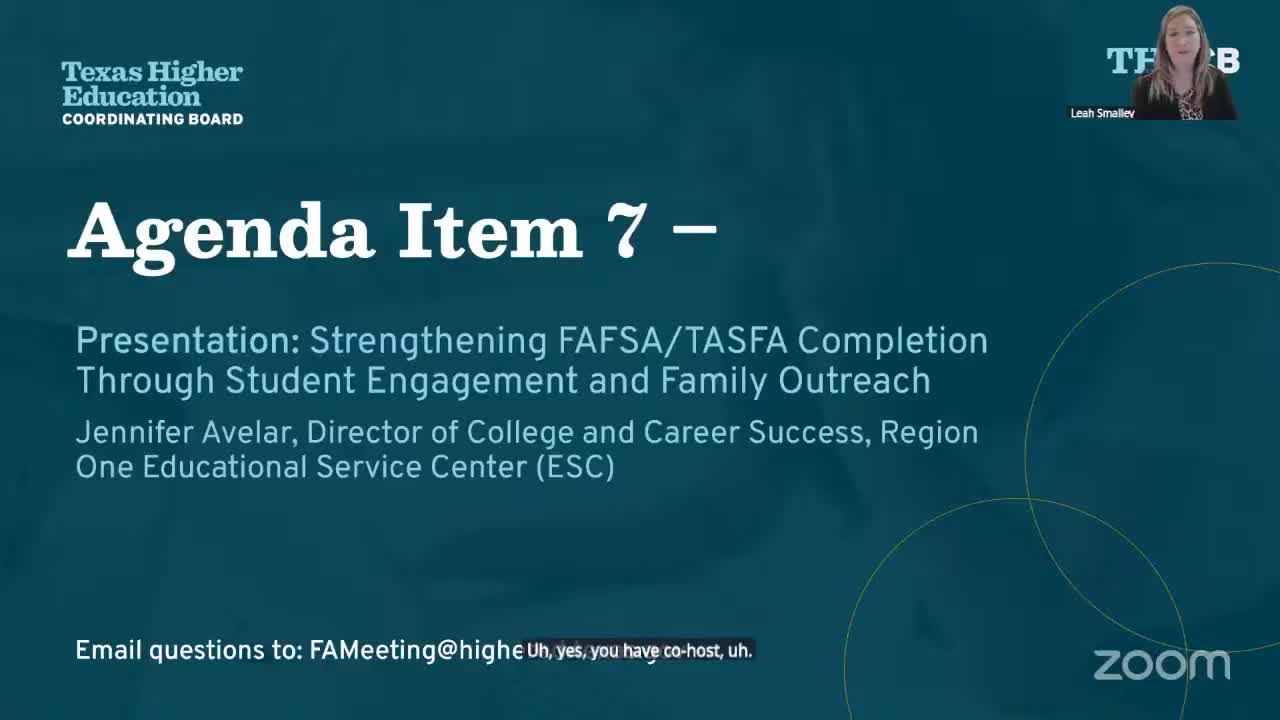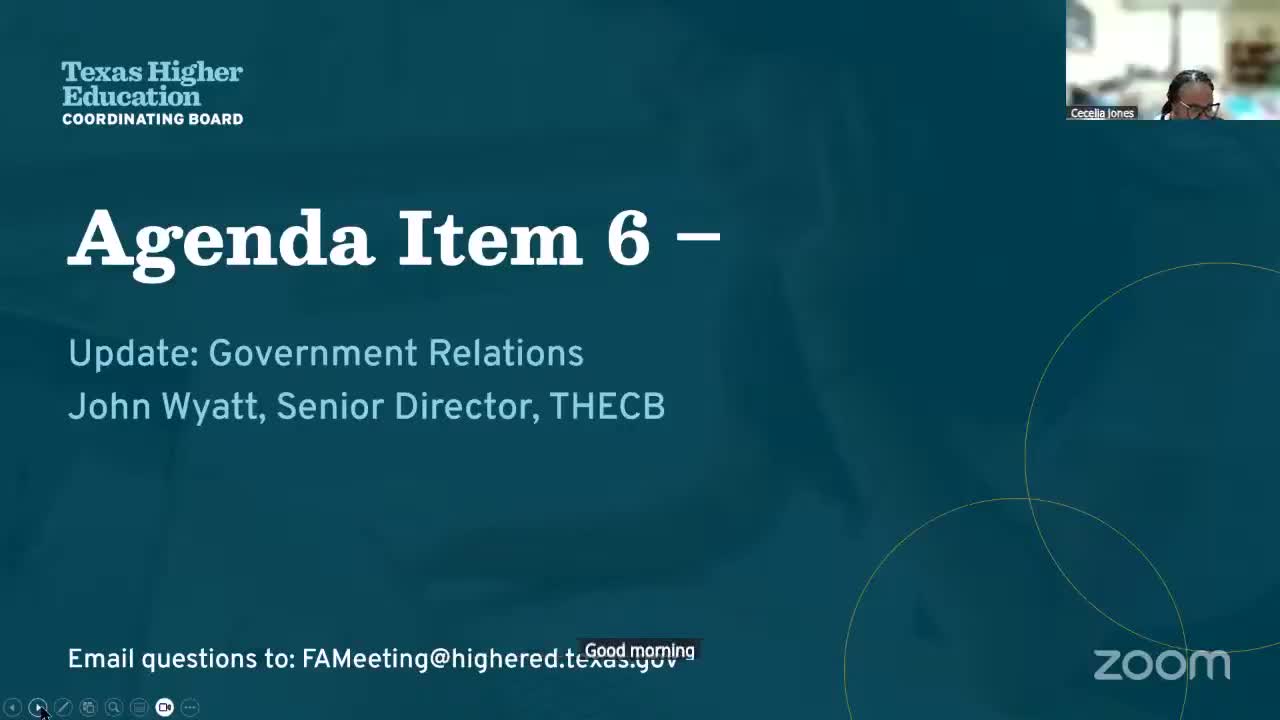Article not found
This article is no longer available. But don't worry—we've gathered other articles that discuss the same topic.

FAAC approves minutes, nominates vice chair; proposed 2025 FAAC members to be forwarded to THECB board

Nonprofit and Trio programs describe barriers to federal aid for incarcerated learners and recommend policy fixes

Coordinating board and TASFA subcommittee outline 2627 online/paper updates, bilingual option paused

Region 1's Rooted Alliance raises FAFSA completion with campus-based advisers, college visits and incentives

